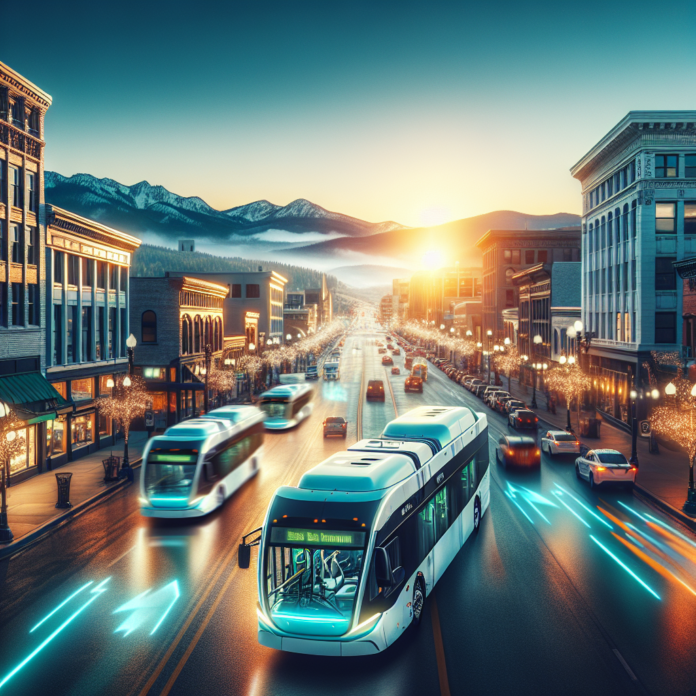Electric Buses and Missoula’s Mountain Line Impact on the Future
“`html
Electric Bus Revolution: The Impact of Missoula’s Mountain Line on Future Transportation
The transportation landscape is undergoing a significant transformation with the rise of electric buses, and Missoula’s Mountain Line is at the forefront of this change. As cities around the globe seek more sustainable and efficient public transit solutions, Mountain Line’s initiative could serve as a model for others. But what does this mean for the future of public transportation? Here’s what you may not know.
Leading the Charge in Sustainability
Missoula’s Mountain Line has made a bold move towards sustainability by integrating electric buses into its fleet. This initiative not only reduces greenhouse gas emissions but also minimizes noise pollution, creating a quieter and more pleasant urban environment. Electric buses are powered by renewable energy sources, making them a cleaner alternative to traditional diesel buses. Mountain Line’s commitment to sustainability aligns with global efforts to combat climate change and promote greener living.
Economic Benefits for the Community
The shift to electric buses is not just an environmental win; it also promises economic advantages for the Missoula community. Electric buses have lower operating costs compared to their diesel counterparts. With reduced fuel and maintenance expenses, the savings can be reinvested into the community, potentially improving transit services and expanding routes. Moreover, the implementation of electric buses can create jobs in the areas of manufacturing, maintenance, and infrastructure development.
Enhancing Public Transit Experience
Electric buses offer a smoother and more comfortable ride for passengers. With advanced technology, these buses are equipped with features that enhance the travel experience, such as better climate control systems and real-time tracking. Passengers can enjoy a quiet ride free from the rumble of traditional engines, making their journey more enjoyable. This improved experience can encourage more residents to utilize public transportation, ultimately reducing traffic congestion and further benefiting the environment.
Infrastructure Investment and Challenges
Transitioning to electric buses requires substantial investment in charging infrastructure. Mountain Line is actively working on the development of charging stations to support its electric fleet. This infrastructure is crucial for ensuring that the buses remain operational and can travel longer distances without interruption. However, challenges such as funding, technological advancements, and community acceptance must be addressed to ensure a successful transition.
Setting an Example for Other Cities
Missoula’s Mountain Line is not just a local initiative; it’s a beacon for other cities considering the switch to electric public transportation. As urban areas grapple with pollution and traffic issues, the success of Mountain Line could inspire similar initiatives across the nation and beyond. By showcasing the benefits of electric buses, Missoula is paving the way for a more sustainable future in public transit.
Conclusion: A Bright Future Ahead
The electric bus revolution is gaining momentum, and Missoula’s Mountain Line is leading the charge. With its commitment to sustainability, economic development, and enhanced transportation experiences, Mountain Line is setting a precedent for other cities to follow. As we look to the future, the lessons learned from Missoula could play a critical role in reshaping public transportation for generations to come.
“`
